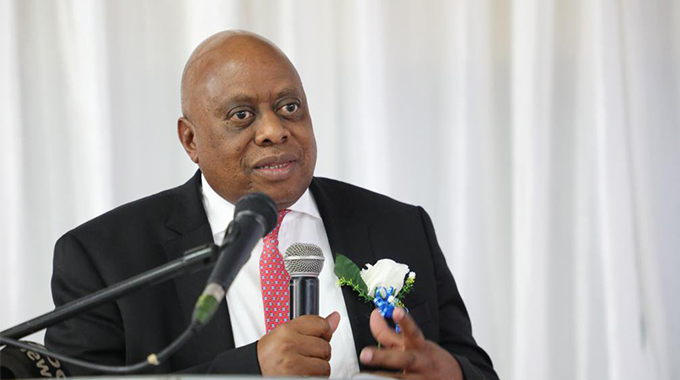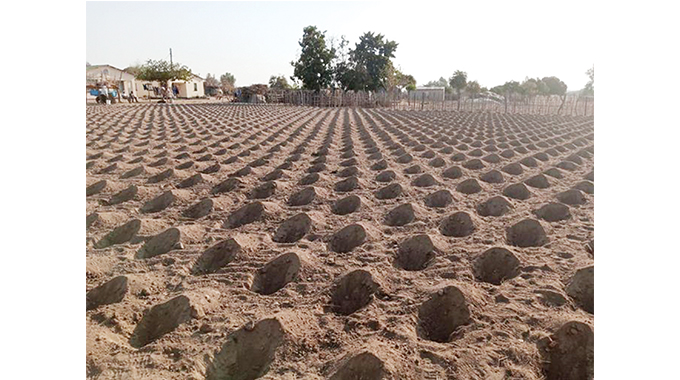Zimbabwe is far from taking sport as a business

Sikhumbuzo Moyo, Senior Sports Reporter
IN the past three years, I have had the privilege of attending three major football tournaments at regional, continental and international level; two of which our own Warriors were participants and managed to bring home one trophy.
I was at the 2017 Cosafa Cup tournament in which the Warriors emerged champions following a 3-1 win over rivals Zambia.
I also was part of the travelling party to the 2019 Total Caf Africa Cup of Nations finals in Egypt where the Warriors played in Group A alongside Egypt, Uganda and DR Congo.
Prior to that in 2018, I was at the Fifa World Cup finals in Russia.
It’s not every day that one gets to be part of thousands at the opening venue and gets to witness the spectacle that is associated with both the Afcon finals and the biggest football tournament on planet earth, the Fifa World Cup.
What I saw in all these was how sport in general and football in particular is treated.
It’s not just a game to them, but it’s business. Their facilities are top-notch and well maintained.
I remember at the Cosafa tournament in South Africa Warriors’ coach Sunday Chidzambwa was livid when he was told that the training venue for the Warriors was a local school. He demanded that it be inspected first to see if it was suitable. The rest is history.
In December last year, I went with FC Platinum to Egypt for their match against African powerhouse Al Ahly in the Caf Champions League.
We visited the Al Ahly Sports Complex where Pure Platinum Play held their training sessions.
As we were touring the facility, I saw the head of delegation, Highlanders’ chairman Kenneth Mhlophe, nodding his head and also shaking, probably in shock at what he was beholding. The same shock also enveloped FC Platinum chairman Evans Mthombeni.
There they were telling themselves that they led well established clubs in Zimbabwe, yet they discovered that everything about their clubs and football in Zimbabwe was way too amateurish.
The Al Ahly complex is a giant structure, with a state of the art volleyball court, basketball court, handball court, tennis court an Olympic size swimming pool with terraces for spectators, a football pitch and well-equipped shopping mall.
The football pitch has floodlights and its dressing rooms, despite it being just a training facility especially for the team’s juniors, has proper dressing rooms that are light years ahead stadia in Zimbabwe.
All these things do not fall from heaven like manna, no, they are a result of policies and also adhering to the dictates of those policies which see sports being taken as a business and not just another form of entertainment or a part time thing to kill time.
While money can help transform sport, as long as those in charge of running various sports do not see value in sport, it will just be money going down the drain.
We saw it in 1995 when the country played host to the All-Africa Games.
Facilities such as the Chitungwiza Aquatic Complex in the dormitory town of Harare and Magamba Hockey Stadium, which were built for those Games are now in ruins.
No one was interested in taking responsibility for their maintenance and as a result, the structures are now an eyesore and in a state of disrepair.
Six years ago, the Government poured millions of United States dollars towards hosting of the African Union Sports Council Region 5 Under-20 Youth Games in Bulawayo and modern equipment was installed at
White City Stadium, but all that simply vanished and no one was ever asked to account for it.
A heating system meant for City Pool was not installed and those supposed to play supervisory roles were somehow accomplices.
All this is because people do not think such massive investment can be done for sports. To them, it’s a chance to enrich themselves and their cronies.
However, what is sad is that nothing is done to bring such unscrupulous characters to book, despite them being known.
It’s now time to change the trajectory as a country and accept that sports is business.
Former Sports and Recreation Commission spokesman Tirivashe Nheweyembwa says the only way Zimbabwe can start appreciating that sports is business is when we start barring sports illiterate people from running the show.
“I think as a country we have theoretically embraced this notion that sport is a multi-billion dollar business, but practically falling far short of what needs to be done. This is as a result of a number of reasons, chief among them being that most of our sports leaders are not sport business literate and as a result the way we conduct business is not only archaic, but inconsistent with sport business,” said Nheweyembwa.
“We have not marched and stepped with the rest of the world in this area. We need to have sport literate leaders and not some talkative supporters to lead our sport. Transformation is a process and not an event, and sports leaders have to embrace change and not remain stuck in the past. There has to be some basic standards for anyone aspiring to occupy a position in sport; it can’t just be for anyone. All the challenges that we have in sport emanate from allowing people who are sport illiterate to run the show,” he said.
It’s clear, therefore, that as Zimbabwe, we are far from taking sport as a business. Our legislators need to take a leading role in helping unlock the value of sport by ensuring they enact legislation that will see corporates coming on board.
They need to enact laws that will see those involved in sporting equipment manufacturing or importing not facing many obstacles at ports of entry.
Patrice Motsepe owns Mamelodi Sundowns, Irvin Khoza owns Orlando Pirates, Kaizer Kaizer Motaung owns Kaizer Chiefs, while numerous clubs in the United Kingdom are owned by individuals, but what is key is that all these fellows rarely use their personal money to fund the clubs on a daily basis, but instead sponsors fall over each other to bankroll the clubs in one way or the other.
Here in Zimbabwe we have numerous businesspersons, who owned clubs, but how many are still standing today?
The likes of Delma Lupepe, Tawanda Ruzive and Mandla Manyathela, to mention just a few, were all running clubs, but none of their teams got corporate endorsements.
It’s all because the environment in Zimbabwe is toxic for such endeavours. The starting point, while sports literacy is also key, is with our legislators. What is there for a corporate besides being mentioned by name?
Mileage is not just about having your name printed in various regalia, no, mileage is also what one will get if you partners a club.
No wonder we will have a company based in Zimbabwe and say South Africa, but find it pouring huge money in a South African competition yet in Zimbabwe the same company will either put in peanuts or nothing at all.
The environment is not conducive in Zimbabwe; we need to enact laws that will entice companies to invest in sports.
In our current Parliament, we have at least seven parliamentarians with a sports background, some who even ran football clubs and know what troubles they went through.
It’s such people who must push that motion. People like Omega Sibanda, Kazembe Kazembe, Gift Banda, Ziyambi Ziyambi, Phillip Chiyangwa, Tawengwa Mukhuhlani, Daniel Molokele and Ozias Bvute, among others, are the people who must vigorously push for friendly legislation to corporates that are into sports sponsorship.







Comments